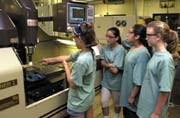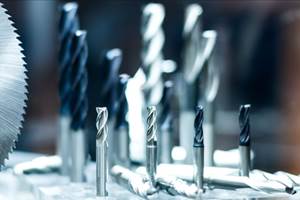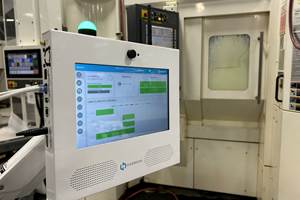Manufacturing's Future...Dependant On A Skilled Workforce
The strength of manufacturing’s future is dependent on the ability of all levels of the educational structure to respond to the needs of industry and develop and maintain a skilled workforce. The Society of Manufacturing Engineers (SME) is dedicated to advancing that process.
Share




The strength of manufacturing’s future is dependent on the ability of all levels of the educational structure to respond to the needs of industry and develop and maintain a skilled workforce. The Society of Manufacturing Engineers (SME) is dedicated to advancing that process.
To transform manufacturing education to better prepare today’s and tomorrow’s practitioners to meet the accelerated technical and business advancements of the 21st Century, SME and its Education Foundation (SME-EF) formed a joint endeavor called the Manufacturing Education Plan (MEP). Through this plan, SME recognizes there is a problem not only in filling the pipeline with individuals interested in manufacturing, but also in preparing students to graduate with the skills industry seeks and in providing necessary programming to meet this need. Additionally, there must be a commitment to career development for professionals to fulfill the need for lifelong learning.
The MEP comprises initiatives at three different levels: K-12; college, university and technical schools; and lifelong learning. Its goals are three-fold.
At the first level, the goal of the K-12 initiative is to stimulate interest in manufacturing, engineering and technology careers—to fill the pipeline with individuals interested in and knowledgeable of manufacturing.
In addition to our own programs—STEPS (Science Technology & Engineering Preview Summer Camp), SME Youth Summits and the RI/SME Student Robotic Challenge— we support other programs that fit our criteria. SME also offers a Web site, www.manufacturingiscool.com, to provide answers and guidance to enhance career development.
STEPS is the nation’s first initiative to attract girls and minorities into careers in manufacturing and technology. In this hands-on, tuition-free intervention program, girls ages 12 to 17 learn to design and manufacture their own remote control airplanes and learn how an internal combustion engine works. They manufacture all of its parts—from wings to the plastic canopy—while receiving first-hand knowledge of the manufacturing process.
In 2000, the foundation launched the STEPS program in Minnesota in a technology-based outreach approach. SME-EF plans to reach 11 more states by 2004.
SME also uses its manufacturing expositions to bring first-hand knowledge of manufacturing careers to local high school and vocational students through its Student Summits. During these half-day educational programs, groups of high school and vocational school students tour the exposition, seeing hands-on technology demonstrations from select industry-leading companies.
The second level of the MEP, the colleges, universities and technical programs initiative, supports the creation and enhancement of manufacturing programs targeting industry-identified competency gaps. SME’s goal is to facilitate dialog between industry and academia to make sure manufacturing education programs deliver graduates who meet industry requirements. These requirements are closely monitored by SME, and the group works with the academic community for integration of these specifications into engineering programs.
The third initiative, lifelong learning, covers the ongoing commitment to career development for those individuals already in manufacturing and engineering. These programs include continuing education, career development tools, certification, technical resources and partnership development. The goal is to ensure that workers continue to have the skills necessary to help employers compete on a global basis.
SME is committed to the Manufacturing Education Plan and is serving the manufacturing community by opening doors for individuals interested in technology and supporting continuing education.
Related Content
The Power of Practical Demonstrations and Projects
Practical work has served Bridgerland Technical College both in preparing its current students for manufacturing jobs and in appealing to new generations of potential machinists.
Read MoreAddressing the Manufacturing Labor Shortage Needs to Start Here
Student-run businesses focused on technical training for the trades are taking root across the U.S. Can we — should we — leverage their regional successes into a nationwide platform?
Read MoreHow to Pass the Job Interview as an Employer
Job interviews are a two-way street. Follow these tips to make a good impression on your potential future workforce.
Read MoreCan Connecting ERP to Machine Tool Monitoring Address the Workforce Challenge?
It can if RFID tags are added. Here is how this startup sees a local Internet of Things aiding CNC machine shops.
Read MoreRead Next
Building Out a Foundation for Student Machinists
Autodesk and Haas have teamed up to produce an introductory course for students that covers the basics of CAD, CAM and CNC while providing them with a portfolio part.
Read More5 Rules of Thumb for Buying CNC Machine Tools
Use these tips to carefully plan your machine tool purchases and to avoid regretting your decision later.
Read MoreSetting Up the Building Blocks for a Digital Factory
Woodward Inc. spent over a year developing an API to connect machines to its digital factory. Caron Engineering’s MiConnect has cut most of this process while also granting the shop greater access to machine information.
Read More

































